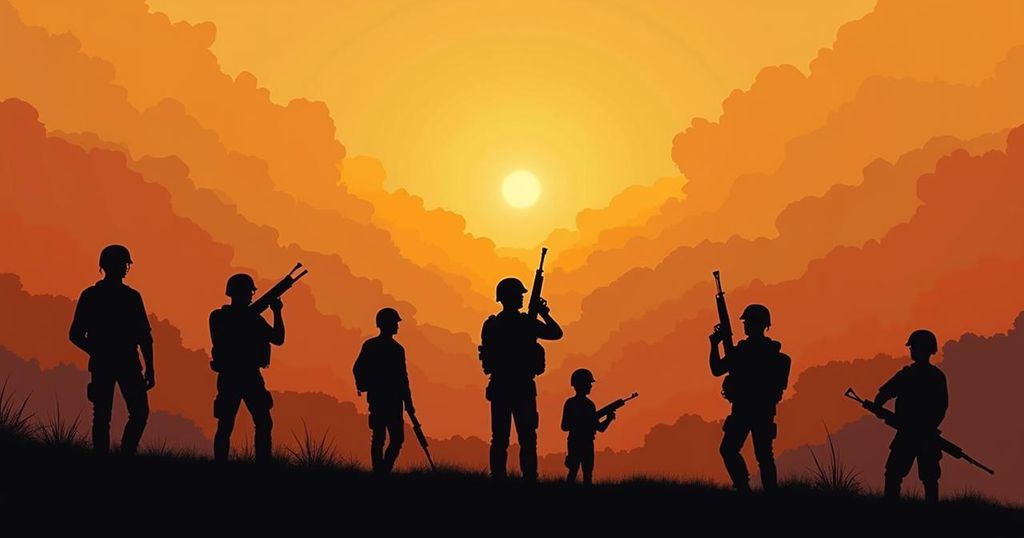Escalating Conflict: Israeli Troops Engage Hezbollah Amidst Iranian Aggression and Fears of Regional War
The situation between Israel and Iran has escalated, evidencing a dangerous trajectory towards wider conflict. Iran launched 180 missiles targeting Israel, prompting military responses from Israeli troops engaged against Hezbollah in Lebanon. The conflict has resulted in significant casualties in both Gaza and Lebanon, while the international community observes with concern the potential for broader warfare involving regional and global powers.
The ongoing conflict between Israel and Iran has escalated dramatically, marked by Iranian missiles targeting Israel and fierce battles involving Israeli troops and Hezbollah militants within Lebanon. On a recent Tuesday, Iran launched approximately 180 missiles, which were partially intercepted by the Israeli defense systems, yet some successfully struck central and southern Israel, resulting in injuries among civilians. In retaliation to Iran’s aggression, Israeli forces targeted Hezbollah and confirmed their operations in Lebanon were aimed at specific militant strongholds. Tehran celebrated the missile attack, with significant demonstrations expressing hostility towards Israel. Simultaneously, Israeli Prime Minister Benjamin Netanyahu strongly condemned the assault, affirming that Iran “made a big mistake” and would face consequences. As Israeli forces conduct ground operations against Hezbollah, the threat of a broader regional conflict looms, drawing the United States into the fray, as military assets have been rapidly deployed to support Israel. On the ground in Gaza, devastating airstrikes have resulted in considerable civilian casualties, with over 41,000 Palestinians reported dead since the onset of the conflict. This led to escalated tensions, with Hezbollah reiterating their commitment to rocket attacks against Israel until a ceasefire in Gaza is enforced. The conflict has displaced hundreds of thousands, amplifying humanitarian crises in both Gaza and Lebanon. Next to these developments, international reactions are critical, as the United Nations and Iran have engaged in a war of words over the deteriorating situation and the necessity for peaceful negotiations. The humanitarian implications and the potential for expanded military engagement leave the situation precarious, with the possibility of further escalations threatening to engulf the region in widespread warfare.
The recent conflict stems from a prolonged history of hostilities involving Israel, Iran, and various militant groups, particularly Hezbollah and Hamas. The assassination of key figures from these groups by Israeli forces has provoked retaliatory strikes from Iran and increased military engagements in Lebanon. The geopolitical landscape has shifted notably since the conflict began, with rising tensions neighboring countries are exacerbating the situation and pushing the Middle East towards a potential wider war. The responses from international powers, especially the United States, play a vital role in shaping the future of these conflicts and their potential resolution.
In summary, the resurgence of conflict marked by Iranian missile strikes and Israeli military operations reflects a burgeoning crisis in the Middle East. With significant casualties reported and the complex interplay of regional and global actors, including the United States, the escalation poses severe humanitarian risks and the alarming potential for a more widespread war. Immediate diplomatic measures and a call for ceasefires may be the necessary steps to curb the violence and address the dire humanitarian plight of the affected populations.
Original Source: apnews.com




Post Comment